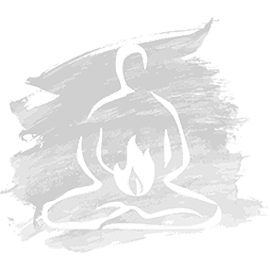
It was an early morning shift when the intercom announced a helicopter in flight with 3-year-old Ranger, a K-9 officer; who had suffered multiple gunshot wounds. Ranger didn’t make it, but it wasn’t without a three-hour fight in surgery removing his left lung while frantically trying to keep his blood levels up. As we pronounced him, he was saluted by his handler and another officer outside the surgical suite.
That was how one particular shift began in my previous career as an emergency veterinary technician. I worked in the critical care department beginning at the age of 19, and continued to work in that field for 12 years, as I completed 9 years of university. Talk about stress!
During my emergency career, I encountered a lot of emotionally heavy cases. We all did. I learned the hard way that I wasn’t dealing with the stress of being a first responder very well.
Who are first responders? First responders are our police, paramedics, firefighters, emergency doctors and nurses, dispatchers, detectives, military – anyone that is exposed to work-related critical incidents. Everyone responds to this type of stress differently. For me, it was nightmares, anxiety, and constant neck tension and pain.
What is resilience and why is it so important? Resilience is the ability of individuals to be exposed to violent or life-threatening situations and still maintain high levels of physical and mental health. That health is important not just for the first responders but their families’ well-being too.
What are some signs of stress?
- Low energy
- Depression/anxiety
- Insomnia
- Headaches
- Body aches and tension
- Digestive issues
- Chest pain and/or palpitations
- Cold hands and feet
- Excess sweating and/or nervousness
- Clenching or grinding teeth
- Isolating yourself from others
- High blood pressure
How do we reduce the effects of stress on our body?
- Recognize and acknowledge that you are working under stressful conditions. Once I acknowledged that I really was having to see and do a lot of intense and heartbreaking things on the job, it allowed me to be more open to talking about it to others. You may even choose to seek counseling, if necessary beyond that supplied by your employer.
- Avoid over-identifying with survivor’s grief. This is simply a self-preservation tool to keep you being able to do your job effectively and successfully. If I identified every animal that I had to prepare post-mortem for rabies testing with my own pet, grief would paralyze me from doing my job and my body would feel the pain.
- Meditation and deep breathing. Meditation does not have to be anything fancy. It is just about taking moments and being mindful and completely present. I really like some of the apps that guide you through 10-minute meditation sessions you can listen to anywhere and anytime. Research is very clear that meditating regularly brings tremendous benefits to our nervous system and even lowers cortisol levels.
- Acupuncture and Chinese herbal medicine. Acupuncture can help you relieve pain, reduce inflammation, relax your nervous system, reduce blood pressure, and help improve your sleep. There are many Chinese herbal formulas that have adaptogenic herbs known for combatting the stress responses and damage in the body.
- Feed your body with the proper nutrition. We underestimate the power of food. It is like medicine we feed ourselves daily. Therefore, we can expect that our body will either love us or hate us, depending on what we continually give it.
- Moving your body will help to release endorphins and other “feel good” hormones. It is a great way to release tension and anxiety. Try to engage in some form of physical activity that elevates your heart rate and stimulates a good sweat 4-5 times a week to really feel the benefits.
My hat goes off to the men and women who work to serve our community and dedicate their careers to being there during the situations when we are most vulnerable. I have a retired police officer and military veteran in my family, so I have a deep appreciation for the challenges these professionals face and the sacrifices they make. Let’s all give a smile and express our appreciation when we see a first responder, particularly considering we may all need them to save the day at some point in our lives!
Erin West is a Doctor of Traditional Chinese Medicine and licensed acupuncturist in Gilbert, Arizona specializing in pain and infertility. She loves sharing her passion for natural approaches to health through her online articles and at her clinic, Mend Acupuncture and Herbal Medicine, at Sage Health Point on Lindsay Road. Call for an appointment at 480-788-1757.
https://www.ncbi.nlm.nih.gov/pmc/articles/PMC3060722/
https://www.ncbi.nlm.nih.gov/pubmed/23724462
https://emergency.cdc.gov/coping/responders.asp
http://www.cbsnews.com/news/california-police-dog-killed-by-friendly-fire-in-line-of-duty/

Meet Dr. West, TCMD, LAc
Dr. West graduated with a Bachelor of Science in Cellular Biology from California State University Fullerton in southern CA where she was raised. She then completed a 5-year Doctorate in traditional Chinese medicine (TCM) at Pacific Rim College of Integrative and Complementary Medicine in Victoria, British Columbia, Canada. Dr. West is Nationally Board Certified in Acupuncture and Oriental Medicine by the NCCAOM and licensed with the State of Arizona.


